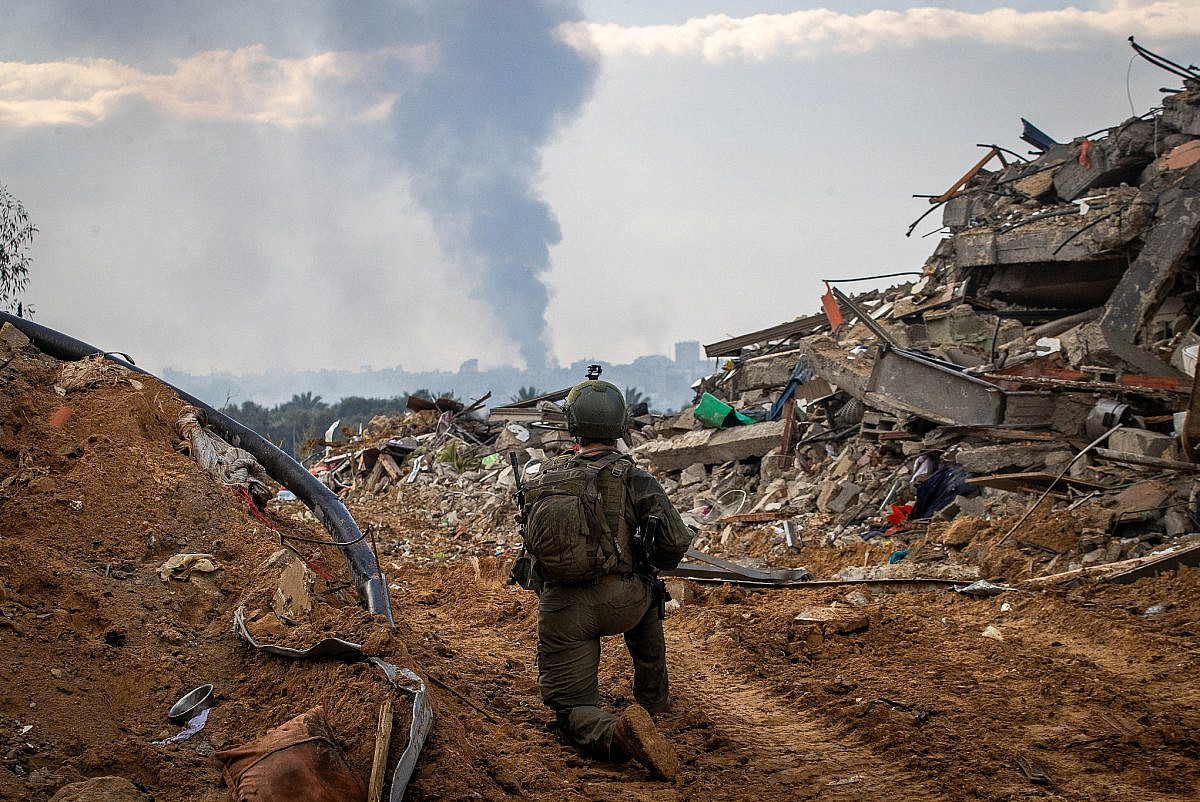Few books can aptly be described as “prophetic,” but the latest release by the Israeli political sociologist Yagil Levy is certainly one of them. Levy submitted the manuscript of “Shooting and Not Crying: The New Militarization of Israel in the 2000s” in April 2022, and the book was published in February 2023 by Lamda – The Open University Press, as if to prepare us for the events of October 7.
Almost every chapter and subsection in the book points to a phenomenon whose consequences we witnessed that day: the military’s complete reliance on technology as a decisive factor in warfare; the adoption of the concept, promoted by previous IDF Chief of Staff Aviv Kochavi, of an army that is “small and lethal”; the obsession with the idea of “deterrence,” which is supposed to negate the other side’s will to fight; and the complete addiction to the status quo as the only possible and desirable state of affairs. All these factors, together and separately, can explain the resounding and shocking military failure of October 7.
Levy illustrates the direct connection between these phenomena and various sociological changes that have occurred within the Israeli army in recent years. First and foremost, he points out the gradual withdrawal of the old Ashkenazi middle class from the ranks of the combat forces and their replacement by new groups: settlers and religious Zionists, ex-Soviets and Ethiopian immigrants, Mizrahim, and Druze.
From the moment the established middle class stopped paying a price for the conflict, both in terms of deaths and economically, Levy writes, the path was paved for taking any talk of political solutions off the table. That discourse was instead replaced with a “conflict management” approach reliant on Israel’s military superiority. Religious Zionist leaders who took senior command positions introduced a system of religious justifications for the use of violence, and the entire military began to see force as a supreme value — as evidenced by the ubiquity of the discourse of revenge and “counting bodies.”
The outcome of these processes has been evident in Israel’s assault on the Gaza Strip, which is now in its fourth month — and is being investigated for potential violations of the Genocide Convention at the International Court of Justice in The Hague.
Throughout 380 pages packed with examples, Levy describes a system that has almost reached perfection. The political echelon wants to maintain the status quo, and the military provides it with legitimacy in exchange for funds and status. Even the processes of economic and social liberalization that Israel underwent in the last two decades have not stopped the militarization, only reinforced it; consider the entry of women into combat units, one of the core issues for the liberal middle class that serves this precise purpose.
Only in the book’s epilogue, over a span of one and a half pages, does Levy outline the way out of this cycle: increasing the cost of maintaining the conflict, exhausting the military path, and formulating a credible political alternative, he says, could provide a turning point. However, so long as the price of maintaining the conflict is low — in terms of lives lost, financial costs, and regional stability — there will be no real desire to abandon the status quo.
Yet this seemingly perfected system, Levy told +972 and Local Call in an interview last month, has shifted out of balance after October 7. Now, he sees the potential for change coming mainly from the international arena, although he acknowledges that its significance has diminished. The Palestinians, whom the army had almost disregarded as a threat, have shaken the mighty Israel.
“I think there is a horizon [for change],” Levy said. “Why? Because the issue is not so much the internal costs as the possibility that the world will impose limits on Israel. The United States or the European Union can create a situation where Israel will find itself paying a price. This is something that can trigger some kind of turning point among the Israeli middle class, which, as I tried to describe in the book, has been entirely passive for many years with regard to managing the conflict because it simply does not pay a noticeable price for it.
“The second possibility is reaching the limits of the military option,” Levy continued. “This war ends when it becomes clear to everyone that Israel has not achieved its desired outcome, and at least part of the public understands that it has not succeeded. Not because the left stabbed it in the back, but because it cannot succeed. This could lead to the conclusion that it is necessary to try another way.
“This is related to the third condition I mentioned: the formulation of a credible political alternative,” Levy went on. “There is now a certain attentiveness in Israeli society to the idea that the Palestinian Authority will return to Gaza, perhaps even by default. The combination of these three possibilities can create a kind of turning point among segments of the secular public.
“Can I tell you that for certain? No. But does it make me somewhat optimistic? Yes. This war has created a major tectonic shift.”
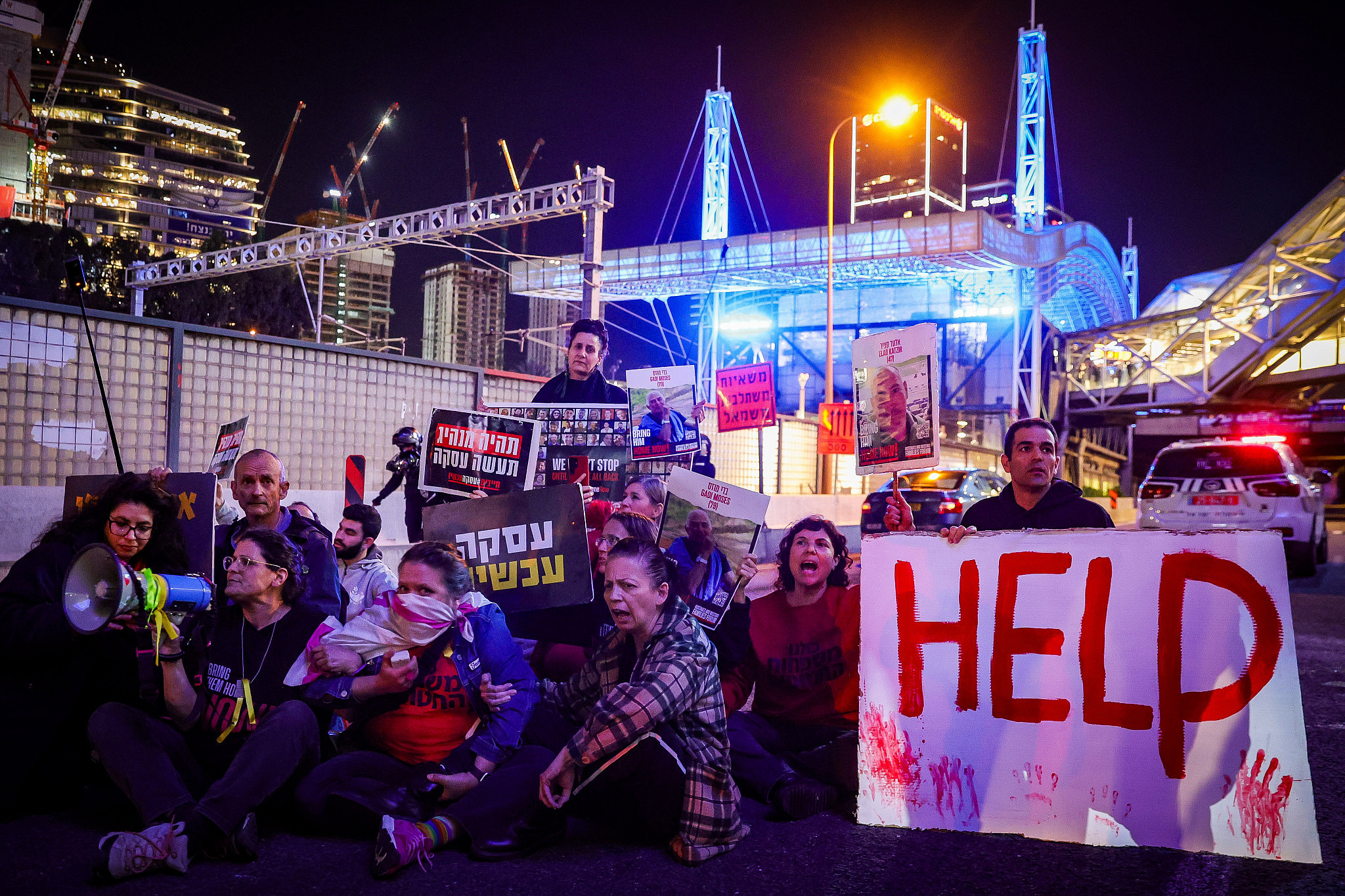
According to your book, from the moment political negotiations cease, the role of the army is to ensure the status quo and provide it with legitimacy. Will October 7 break this cycle, and damage the public’s trust in the army?
There is at least the potential here for trust in the military to be broken, but it’s not a total break. Very broad segments of the Israeli public believe that a military victory in Gaza is possible, and that this possibility is being hindered by international pressure.
Over time, there will also be claims of internal pressures, including the notion that the pressure to rescue the hostages is diverting attention from the war effort. There is also likely to be much greater polarization in Israeli society after the war, which may shift the secular Israeli middle class — the group that is key to a future political settlement — from its apathy.
But at this stage, the military paradigm has not failed — certainly not in the sense of public trust in it. The fact is that the army and its mode of operation enjoy a very high level of trust. When this path ends in frustration, I have no doubt that some will come and say, “We need to try a different paradigm.” In the meantime, I don’t see this change.
Even with such a high number of casualties among soldiers? More than 550 Israeli soldiers have been killed since October 7, including over 220 while fighting inside Gaza.
It is a lot, but without diminishing the tragedy of each and every one, this number does not raise question marks for two reasons. First, after what happened on October 7, death is perceived as a kind of fate. Second, when we look at the map of casualties, we see that a majority of them come from outside the secular middle class: religious Zionists, settlers, immigrants from the Soviet Union, Ethiopians, and Druze.
This war has not sent a shockwave through the centers of power in Israel. What will shock those families is an economic cost, international sanctions. Perhaps also a moral price, such as the discussions about genocide [at the ICJ].
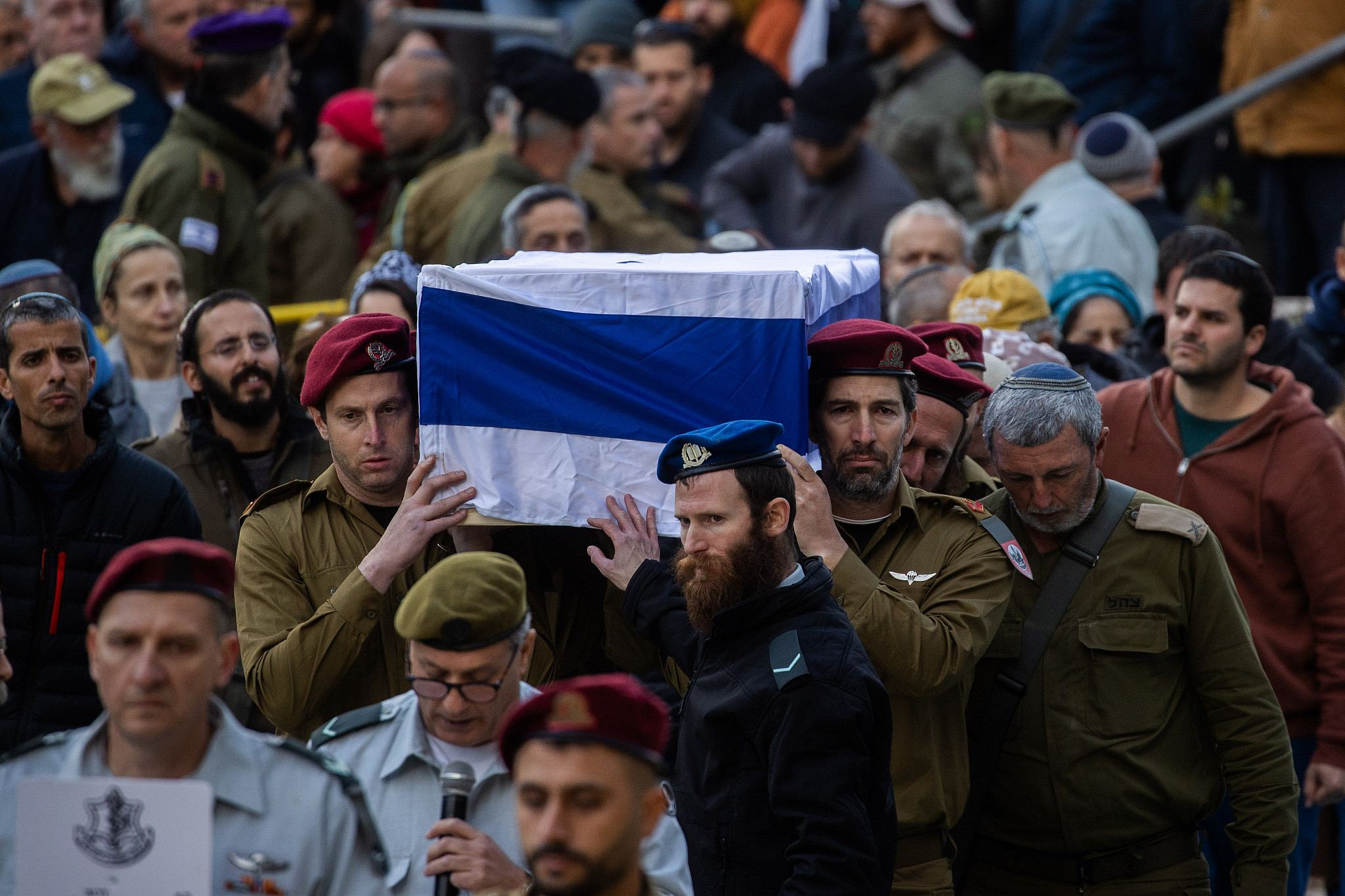
During the Lebanon War [which began in 1982], for 12 years — from 1985 to 1997 — there were no forces within Israeli society that pushed for change. The Archimedean point was the helicopter disaster [in which two helicopters transporting Israeli soldiers into Lebanon collided, killing 73 people]. The disaster was important, because in a very circumstantial way the composition of the casualties reflected the wars of the past. Therefore, it horrified the middle class and created a big movement [to end the war]. Without it, it would have been possible for Israeli forces to stay in Lebanon for many more years.
Reservists were seen as a potential political force [when, for example, 3,000 reservists refused to participate in Israel’s invasion of Lebanon in 1982]. However, the gradual change in the army’s composition is also reflected slowly in the reserve forces. Moreover, the reserves have become a semi-selective force: those who identify with the mission will come, while those who don’t will stay at home.
There is the potential for a certain kind of protest in the reserves. People returning home may find themselves in financial hardship, and will see that the country is not helping them. Students returning to their studies may find that their peers have advanced academically beyond them. This could incite a rebellion within the reserve community. However, it will not be political; it will be more of a materialistic rebellion.
If the army stays in Gaza for an extended period of time in all kinds of security zones — including the crazy idea of returning to the Philadelphi Corridor [along Gaza’s border with Egypt], which the army has intentionally avoided entering — you will see more and more reservists getting wounded. But the army has the ability to produce architectures that narrow the role of the reserves, knowing that it could be politically explosive. More regular units will be established, or more ultra-Orthodox will be conscripted from the parts of the community that are showing more signs of willingness to enlist, and of course women, which is one of the biggest internal military developments of this war.
What will be the result of the army’s failure to achieve its stated goal of eliminating Hamas?
I estimate that the phenomenon I have called “the blue-collar rebellion” will intensify. We are already seeing soldiers defying the army and its professed values at an unprecedented scale. The videos from the mosque in Jenin [in which Israeli soldiers were seen singing and praying in Hebrew through the mosque’s loudspeaker], talk of revenge, talk of returning to Gush Katif [the Jewish settlements that stood in Gaza until Israel’s “disengagement” from the Strip in 2005], posting photographs of Palestinian detainees [in northern Gaza] — these are messages that contradict the army’s basic codes.
Such defiance by soldiers has been seen before on a much smaller scale, such as in the cases of “David HaNahlawi” [who in 2014 was filmed punching a Palestinian activist in Hebron, and whose punishment by the army provoked a backlash of online solidarity among soldiers] and Elor Azaria [who in 2016 was filmed shooting dead a Palestinian who had attempted to stab soldiers but was already incapacitated, also in Hebron], but it had largely calmed down until now.
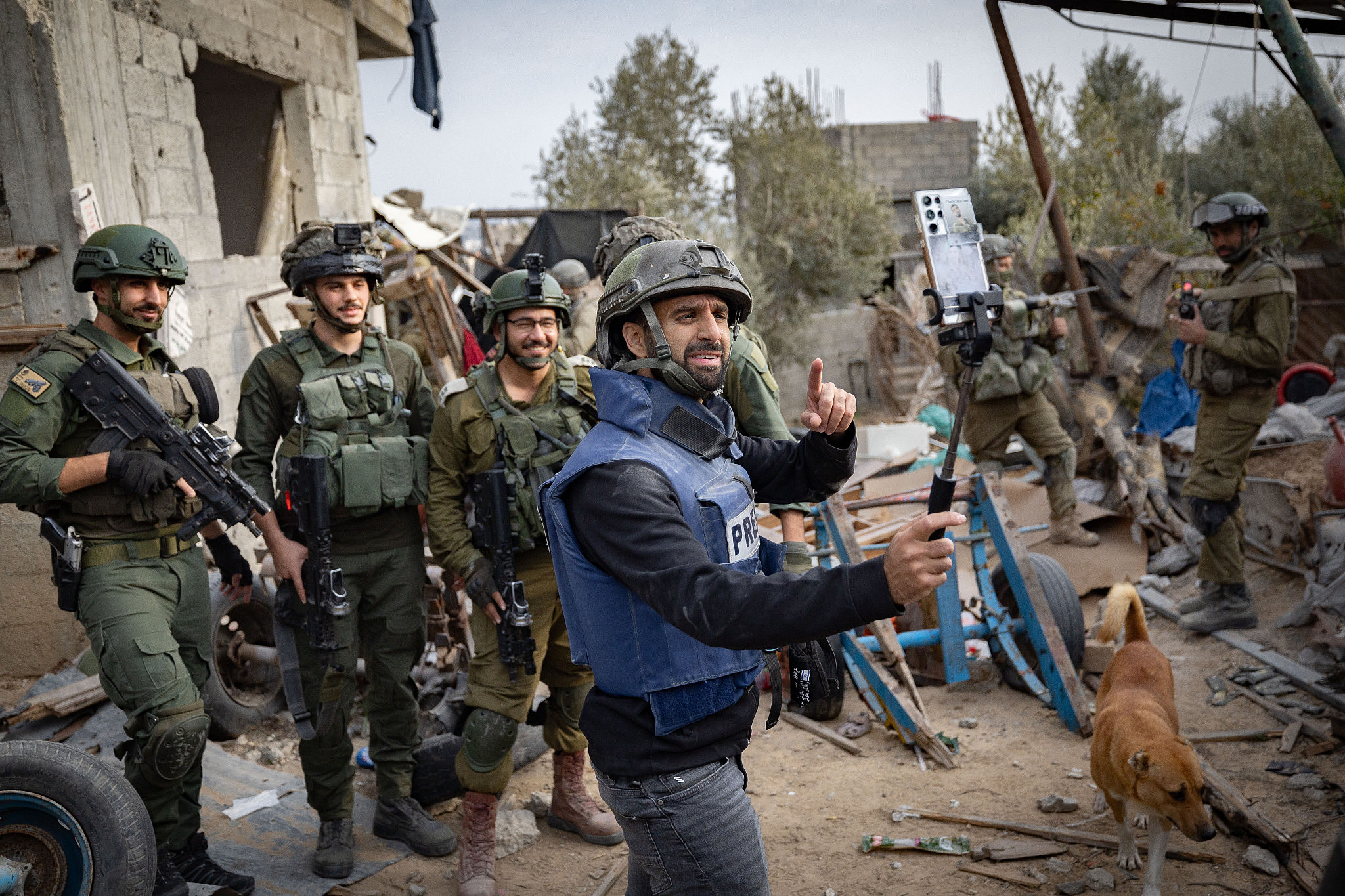
My assessment is that as the gap between the goals of the war and their realization increases, — that is, when soldiers will feel that they have invested their time and risked their lives and the lives of their friends and it all went down the drain, even if as a result of the fact that the world and the left stabbed the nation in the back — these conversations will be amplified significantly.
The army isn’t even trying to impose discipline on this matter. The only phenomenon that has bothered the military lately, and which it hasn’t gained control over, is looting. It is much more widespread than we know. In a recent discussion that I participated in, a veteran leftist recounted hearing from her grandson that his friends looted a grocery store. He did not participate, but enjoyed the fruits.
Why is the army not managing to control this?
Because it decided to choose its battles. The priority right now is keeping the troops in high fighting spirit, not to deal with discipline, and certainly not to have to deal with critics on the right. [IDF Chief of Staff] Herzi Halevi understood that cost very well after punishing the soldiers involved in the Jenin mosque incident.
A chief education officer issued a daily order [against looting]. It’s pathetic. A chief education officer is a figure who can speak about values, he is not a commanding figure. Prohibition of looting is first and foremost a matter of military discipline. The fact that they talk about “military values” and not “military orders” is a very clear expression of leniency. Values can be debated, orders cannot.
What do you understand about the current rules of engagement in Gaza?
There are none. How do I know? Because the starting point in “Operation Cast Lead” in 2008-9 and “Operation Protective Edge” in 2014 was that the soldiers were operating in a “sterile zone.” Why sterile? Because we told the residents to leave, which means everything is a legitimate target. We heard it from soldiers who testified to Breaking the Silence, and we heard it from Tzvika Fogel [who served as a general during Operation Cast Lead and now serves as a Knesset member for the far-right Otzma Yehudit/Jewish Power party] who said: “There’s no such thing as an innocent person in Gaza.”
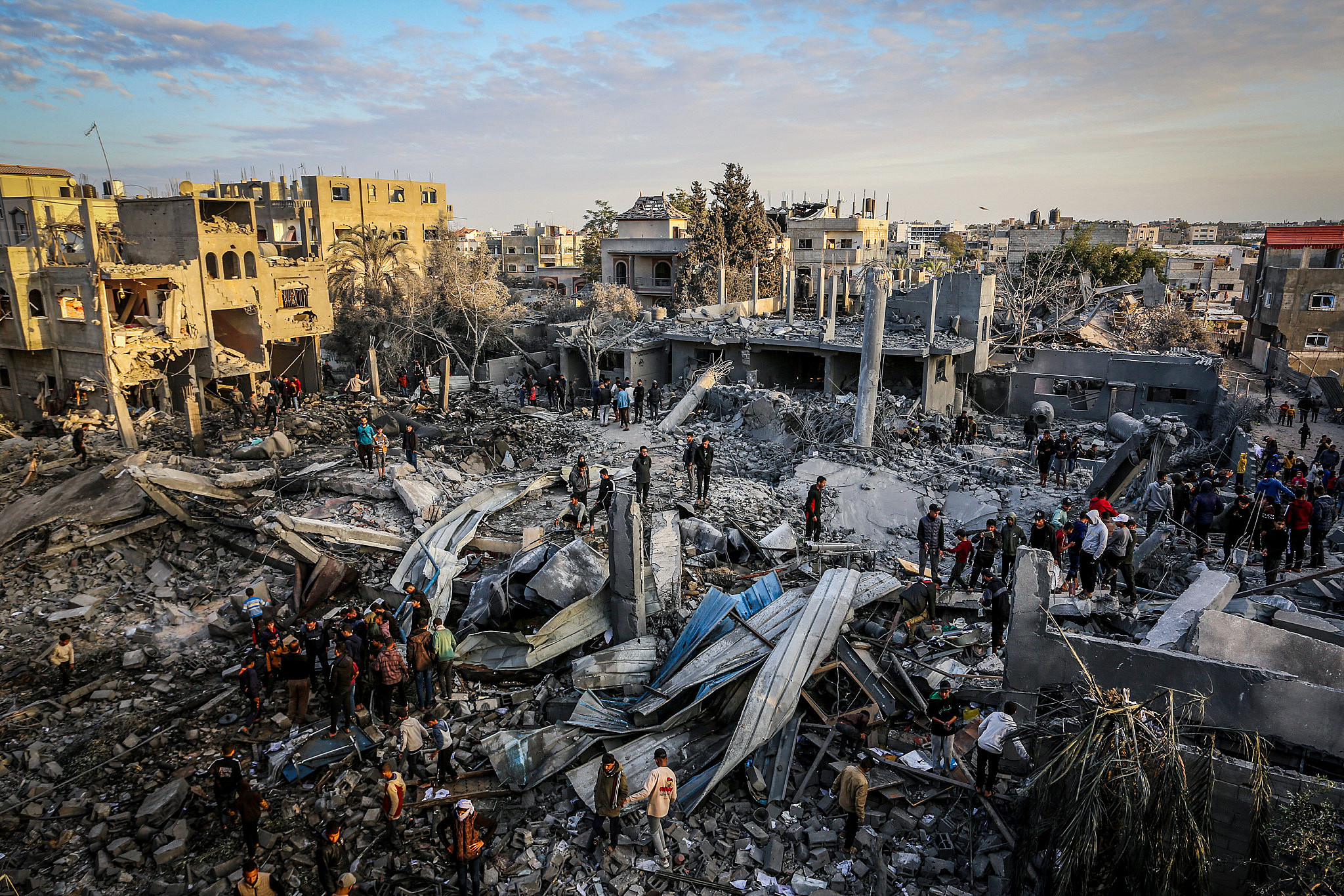
Since the Second Intifada, the army has not given soldiers written rules of engagement, so the matter is open to interpretation. The fact that every person [in a “sterile zone”] is a legitimate target is also one of the reasons for the high rate of friendly-fire and accidental killings [which account for around one-fifth of the soldiers killed in Gaza since October 7].
Any talk of restraint is a dirty word. In 2014, after Operation Protective Edge, the military prosecutor’s office came under a lot of pressure. In response, army commanders began saying that the prosecutor’s office does not restrict them. I heard Gadi Eisenkot [a former IDF Chief of Staff, and a member of the current war cabinet] at a recent forum in which he said that there is no way that the prosecutor’s office will tell the army to stop. He essentially said: “There is no prosecutor’s office now.” That’s a statement you’re not supposed to make.
According to your book, within the framework of maintaining the status quo, the military was granted the status of policymaker. Military means replaced political means. If the army admits that there is no military solution, it will lose this role.
It is not accurate to say that the army shapes the policy, but the political framework is a military framework. Netanyahu shapes policy within a world of military concepts. There is no political exit strategy and no political vision, which are the ABCs of any war.
How do you view the growing discord between the military on the one hand, and Netanyahu and the right on the other — the stormy debates in the war cabinet, and ministers’ attacks on the army chief of staff and generals?
The army is seen as having broken a contract in the deepest sense. It offered a service of legitimization to the political leaders in return for status and resources. It violated this contract because the legitimacy for the status quo, which it was supposed to provide, is now eroding. Even the right now understands this. The moment an American president declares, “There is no going back to the status quo,” this becomes a guiding tone for leaders of the Western world.
The Israeli right gives this violation much deeper meaning than just “military failure.” You received a lot of money and a lot of status, and you failed to maintain the status quo due to foolish mistakes on October 7, which could have been easily avoided. Because of your shameful mistakes, we are now facing a situation where the world is standing against us.
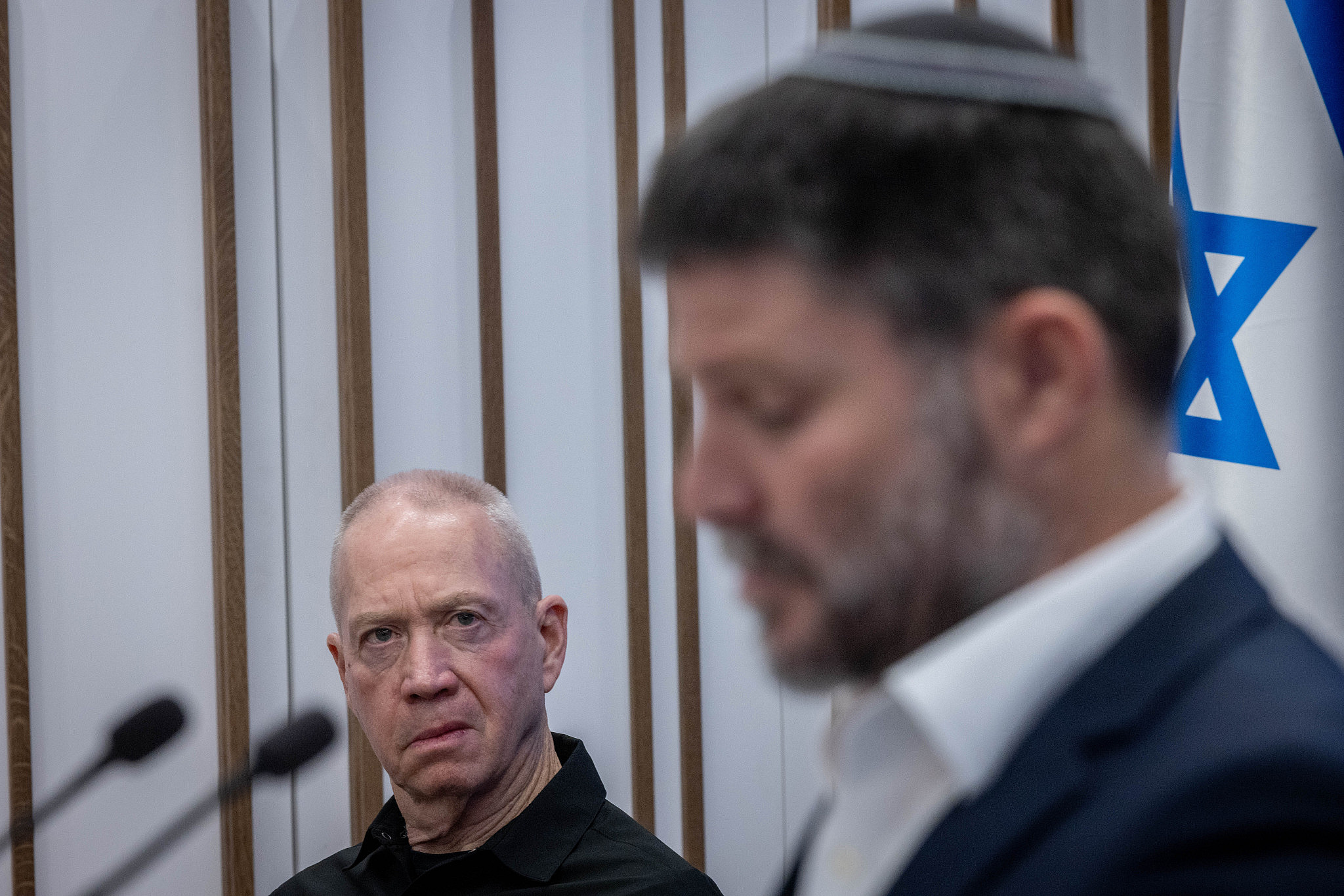
So the right is disappointed with the army, but the attack also stems from its view of the army as representing the middle class. The military’s great failure, in the eyes of the right, was not restraining the protests of the air force pilots and other reservists [in the context of the mass protests against the far-right government’s judicial overhaul]. This meant that the army became strongly identified with the Israeli center-left, rightfully or not.
The narrative we are seeing now holds the center-left responsible for undermining [national] unity and inviting our enemies to attack us, and the army is seen here as representing a [liberal, secular] system of values that extends beyond the military establishment itself.
Does the right really think it can bring the army to fully reoccupy Gaza?
Yes.
And the army?
The army will cooperate with them.
A full occupation?
Not a full, eternal occupation, but an occupation in the sense that we will remain there until “purification” [i.e. total eradication of Hamas] is complete. The army is saying, “We need to remain there; it’s going to be a long struggle, and we need time.”
The army did not act against the political echelon at the defining moment of October 7 and did not say that there were goals it was unable to achieve. When the [2006] war in Lebanon broke out, according to the Winograd Commission [established by the government after the war to derive lessons], Dan Halutz [the IDF Chief of Staff at the time] said: “The politicians are talking about ‘crushing’; I am much more modest.”
This insight did not exist now because this is a humiliated army. The army has been humiliated for a whole year by the Israeli right; it is perceived as lacking a backbone in the West Bank, lacking a backbone to rein in the pilots’ protest, and what happened on the morning of October 7 only exacerbated this. And when the army is humiliated, it is pliant.
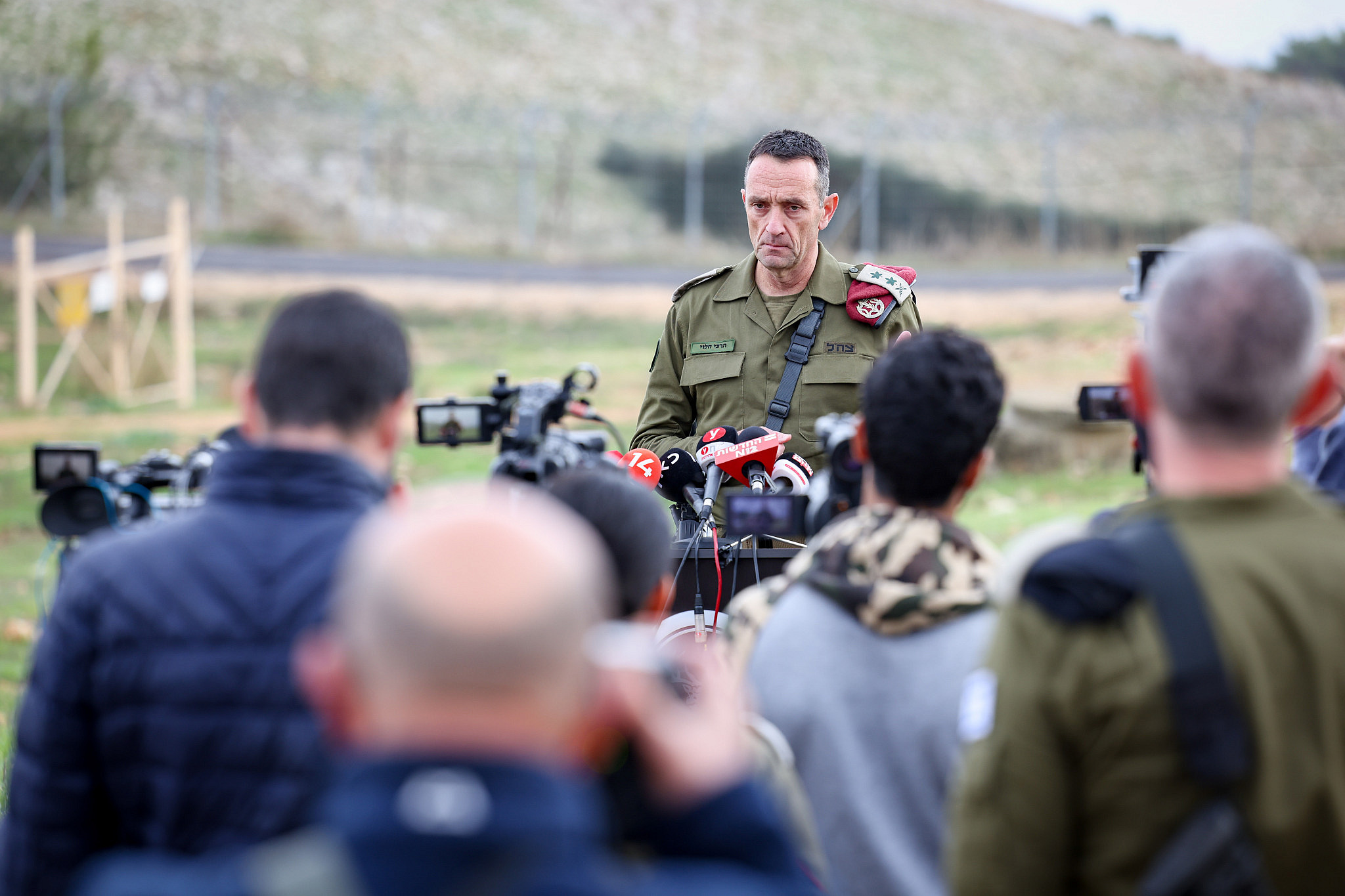
But what will happen if Netanyahu actually orders the army to re-establish the civil administration — the bureaucracy responsible for civilians under occupation — in Gaza and occupy the Philadelphi Corridor along Gaza’s border with Egypt? The military isn’t crazy about that, is it?
There will be debates about this, and it is possible that in this matter the army will say to the right, “Enough.” But these are clashes over how to manage the conflict, not about the political vision.
The army can hit the brakes. Don’t forget that, more than anyone else, the army fears international investigations into war crimes. Parts of the army may conclude that it has lost its ability to influence things. Therefore, even at the cost of clashing with the right, the army needs to preserve some of its professional assets, certainly if it gains the backing of parts of the center-left and the United States. This support is the army’s lifeline — as this war has demonstrated more than any moment since 1973.
The army will not agree to be the pawn of the extreme right. It also understands the limitations of budget and [the reliance on] reservists. It is not for nothing that the army has pressed for a type of de-escalation that will allow for the release of some of the reservists.
Returning to where we started, you wrote that only if three conditions are met — raising the cost of managing the conflict, exhausting the military option, and formulating a credible political alternative — will there be a chance of moving beyond the status quo. Has the war thrown the system out of its perfect equilibrium?
Yes, because the significant upheaval and large-scale casualties have greatly disturbed the world. There is an international interest here. The United States needs Saudi Arabia, and Saudi Arabia cannot go back to betraying the Palestinians as it tried to betray them before.
What about within Israel?
Internally, the change will only happen when there will be very high costs that will force our eyes open.
In other words, in order for there to be an internal change, the external actions have to be more dramatic?
This is the realization that I’ve come to. I gave too little space to external pressure.
Most read on +972
Perhaps the book also underestimates the ability of the Palestinians to influence the system, to demonstrate agency. On October 7 and throughout the war that followed, the Palestinians have been saying: “You built a perfect system, but you forgot us.”
I understand this critique, but I don’t agree with it. The Palestinians demonstrated agency during the First Intifada and the Second Intifada, and they are demonstrating agency again now. The point is that on October 7, Israel — as a result of its own failures — did not manage to confront a threat that it could have easily prevented. This gave the Palestinians much more power than they truly had.
The story of October 7 is a tale of a grotesque failure. We wouldn’t be sitting here now if Israel had taken a few minor actions — another battalion here or there, a bit more alertness, equipment that was checked over a little more.
It’s reasonable to assume that Hamas did not expect to be so successful, but in the end, it was the Palestinians who threw the Israeli system off balance.
Totally.
A version of this article was first published in Hebrew on Local Call. Read it here.


